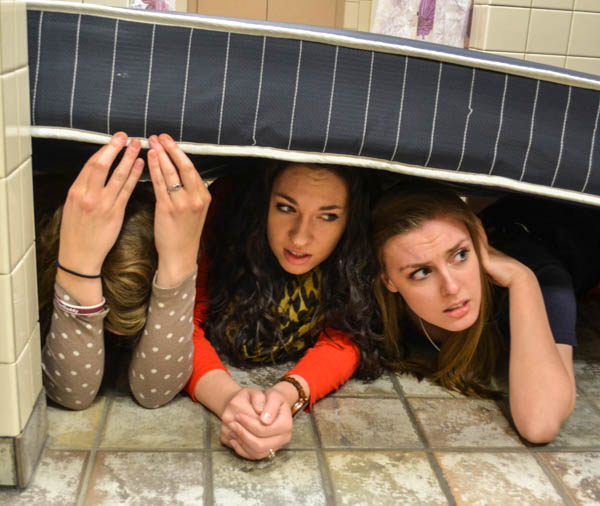Photo by: Abby Bellow
Tornado season has officially arrived in Oklahoma, and for students on campus, reading severe weather emails and staying informed is vital for safety.
“Our job, as far as housing, is to protect our students,” Judy Davis, director of residence life, said. “We make sure that we try to stay ahead of the game, making sure they have information on what to do in case of severe weather.”
Davis said when severe weather is expected, students need to watch their emails for updates and instructions.
“We send out an email to all of the students about what to do, and then we also have the link down [at the bottom of the email] that shows them how to sign up for the campus emergency system,” Davis said.
For students who are unfamiliar with Oklahoma severe weather, residence directors and phase managers would be the next best source of information.
“When it gets to this time of year, what we do is have weekly meetings with our resident directors and we let them know that we have international students and students who are from different places where they don’t have tornadoes,” Davis said. “For those students, know you aren’t in this by yourself; you can lean on your housing staff to help you know where to go and always read the information that we send out.”
Phase 5 resident assistant and junior Carlie Croxton said the housing staff is informed and equipped to handle severe weather situations, and that tornado season shouldn’t scare students who have never experienced one.
“[Students] don’t need to worry too much about checking the weather because your residence director will be watching it constantly if there is a chance of severe weather,” Croxton said. “But be sure to be checking your phones and emails because your residence directors will be communicating with you that way, if there is a problem.”
According to Davis, the first thing to do in a tornado if you cannot leave your building is to get to the lowest possible level in a windowless, inside area. Individuals should make sure they are safe, pulling a mattress or pillow over their head for protection against flying glass and possible falling debris.
“Know what the closest shelter is so that when it is time to evacuate, you know where to go,” Croxton said.












Be First to Comment